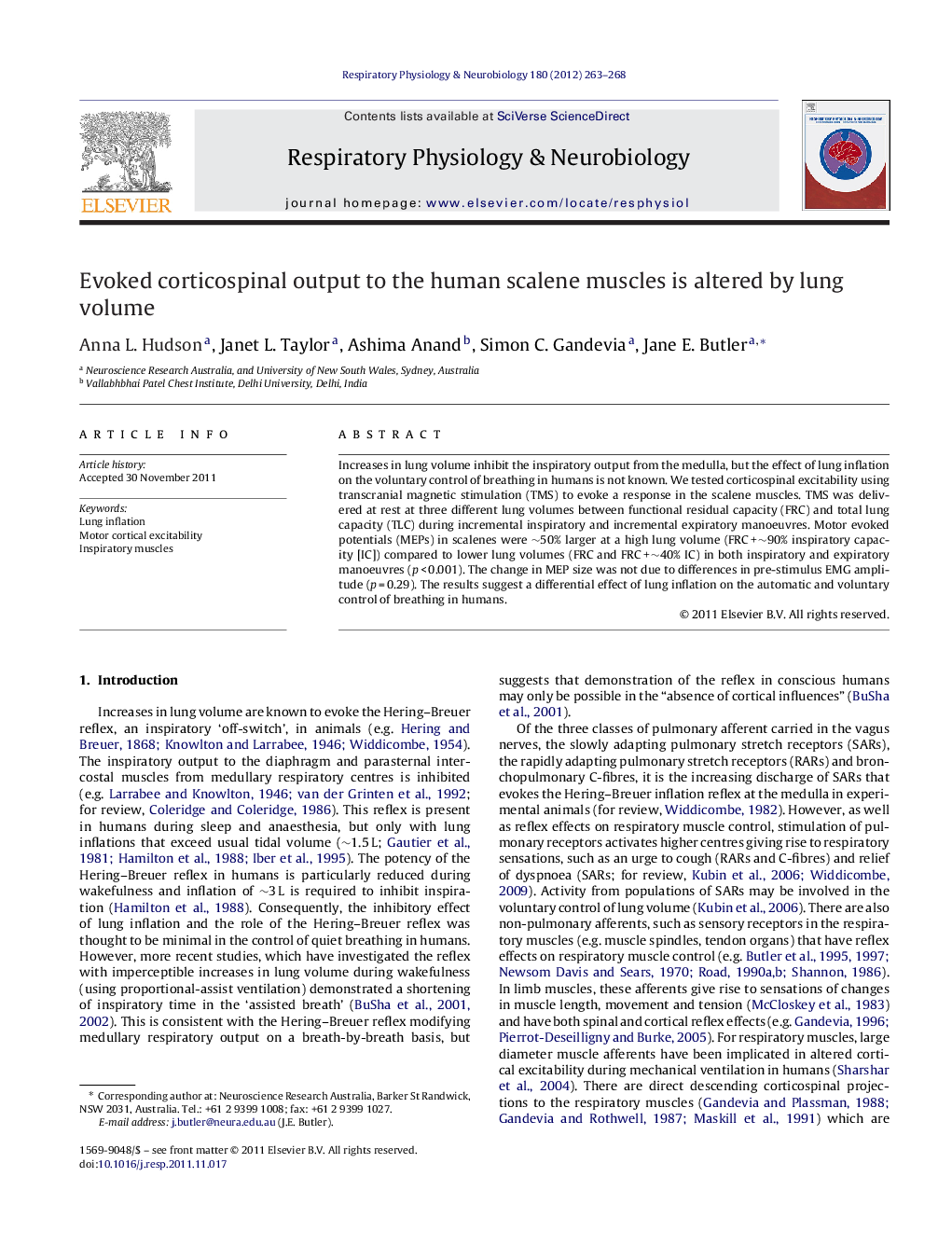| Article ID | Journal | Published Year | Pages | File Type |
|---|---|---|---|---|
| 5926340 | Respiratory Physiology & Neurobiology | 2012 | 6 Pages |
Abstract
Increases in lung volume inhibit the inspiratory output from the medulla, but the effect of lung inflation on the voluntary control of breathing in humans is not known. We tested corticospinal excitability using transcranial magnetic stimulation (TMS) to evoke a response in the scalene muscles. TMS was delivered at rest at three different lung volumes between functional residual capacity (FRC) and total lung capacity (TLC) during incremental inspiratory and incremental expiratory manoeuvres. Motor evoked potentials (MEPs) in scalenes were â¼50% larger at a high lung volume (FRC + â¼90% inspiratory capacity [IC]) compared to lower lung volumes (FRC and FRC + â¼40% IC) in both inspiratory and expiratory manoeuvres (p < 0.001). The change in MEP size was not due to differences in pre-stimulus EMG amplitude (p = 0.29). The results suggest a differential effect of lung inflation on the automatic and voluntary control of breathing in humans.
Related Topics
Life Sciences
Biochemistry, Genetics and Molecular Biology
Physiology
Authors
Anna L. Hudson, Janet L. Taylor, Ashima Anand, Simon C. Gandevia, Jane E. Butler,
